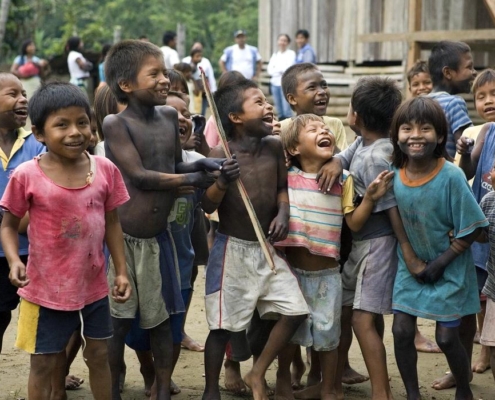Afro-Colombians are a significant portion (almost one quarter) of Colombia’s overall population, yet they are one of the poorest ethnic groups of the country. More specifically, studies have shown that three-quarters of the Colombian population which is classified as being “poor”, is composed of Afro-Colombians. This is reflected in some of the most basic, daily, aspects of their lives, such as the average annual salary of Afro-Colombians. While people from this ethnic group earn, on average, 500 dollars a year (or 1.5 million Colombian pesos) people that are from White or Mestizo ethnic groups earn an average of 1500 dollars a year (or 4.5 million Colombian Pesos). This means that the average Afro-Colombian earns three times less than the average White/Mestizo Colombian.
This issue roots primarily from the fact that in Colombia, blacks do not have the same educational, and economic opportunities as the rest of the population. They also have very few life opportunities such as limited access to jobs. These are the factors that contribute to an 80 percent rate of poverty among African descendants. The World Bank recently reported that the percentage of Afro-Colombians that receive primary education is higher than the percentage of primary education received by the rest of Colombians, being 42% versus 32%, respectively. However, many Afro-Colombians are not able to receive any higher education besides primary level education because secondary education (or high school education) is only offered to 62% of Afro-Colombians, while this type of education is offered to 75% of all other Colombians.
Furthermore, researchers have found that the overall educational quality of schools located in Afro-Colombian communities is much lower and poorer than those in other communities, mainly because of the lack of government support and investment in these areas. This was reflected in the results of the ICFES exam (national standardized exam), which showed that the average results for Afro-Colombians were significantly lower than the results of the rest of Colombians. Given that only a very few numbers of Afro-Colombians can reach college/university education, the range of jobs for most Afro-Colombians is very limited and obtaining high-level jobs with a good salary is very difficult for them to achieve.
White Colombians in Bogota strengthen already existing racial ladders and reinforce them in urban areas through spatial isolation—placing racism and racial discrimination external to their social worlds. Discrimination based on race and spatial isolation affects the interaction between citizens in urban spaces.
Urban researchers have found drastic economic differences between the residents of Bogota. Suburbs are segregated and more uniform with people with similar incomes. This stratification has a racial and economic element to it. Afro-Colombians are segregated and live in all 19 sectors of the city, which are sectors with the two lowest stratum classification such as designations, Bosa, Kennedy, and Ciudad Bolivar, which are situated very far away from Zona Rosa, a city full of nightlife and entertainment.[27]
Statistics on jobs and politics]
According to a study, between 2002 and 2010 Afro-Colombian legislators proposed 25 bills directly affecting the Afro-Colombian community and only two bills were approved. Another study done by the National Union School, 65% of Afro-Colombians in the informal sector and 29% in the formal sector make less than the minimum wage.[29]
Example of social inequality
The racism in Colombia is so extreme that it can get Afro-Colombians stopped for just looking suspicious. It maximizes where they can go and where they cannot. For instance, Afro-Colombians are prevented from getting into some nightclubs and restaurants.[25] They are denied entrance to certain places where many elites and tourists usually go. People have been moved aside and questioned because of their skin color, while other people can get in without further questioning. Bouncers usually tell them that they are hosting a private party and they need invitations to get in.[30] They use this as an excuse to stop them from entering these places.

